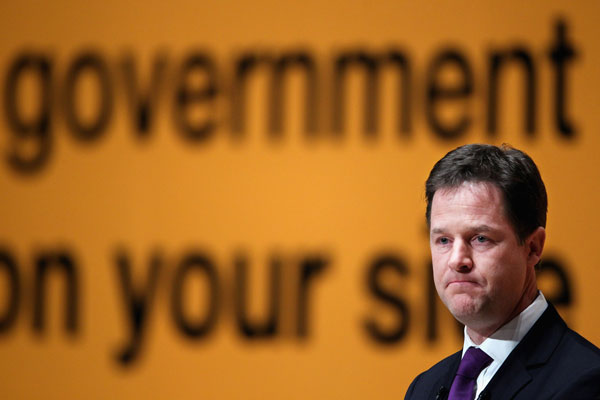There are more rumblings this morning on the shape of the next comprehensive spending review, this time at grassroots level within the Liberal Democrats. The Times reports threats from former Lib Dem MP Evan Harris that any attempt to sign up to a traditional spending review will trigger an emergency motion at the party’s autumn conference.
The leadership is already well aware of this issue: I blogged last week that a senior party figure had told me that the £10 billion of welfare cuts that George Osborne has predicted are necessary over the next spending review period are ‘just not going to happen’. Clegg and co know that the Lib Dem grassroots will not weather another round of welfare cuts when they already feel their MPs have had to bend over backwards for the first set. Welfare isn’t as totemic as tuition fees for the party, but party members – who tend to be to the left of their leaders anyway – are still deeply anxious about further attempts to cut the bill. One Lib Dem councillor remarks to me that the mainstream ‘associates welfare with the party’s commitment to social justice’.
It’s worth noting that for all the vocal fuss that MPs like Simon Hughes and Jenny Willott made when housing benefit cuts and the benefit cap were going through parliament, there was no significant rebellion against the primary legislation that enabled those cuts. The Lib Dems largely took cuts they were unhappy with on the chin, but they are worried that they cannot afford to do this a second time around.
The party is looking at how it can assert itself in welfare policy terms in any case. I understand that work is going on involving MPs and peers within the party who want to work out what a Liberal Democrat welfare state in the 21st century actually means and how that will feed in to a 2015 manifesto.
The real battle will be over exactly how the coalition can orchestrate any sort of spending review in 2013 without one party committing to another’s cuts, or spooking the markets with commitments that are just too vague and broad brush when there are still two years before the general election.







Comments